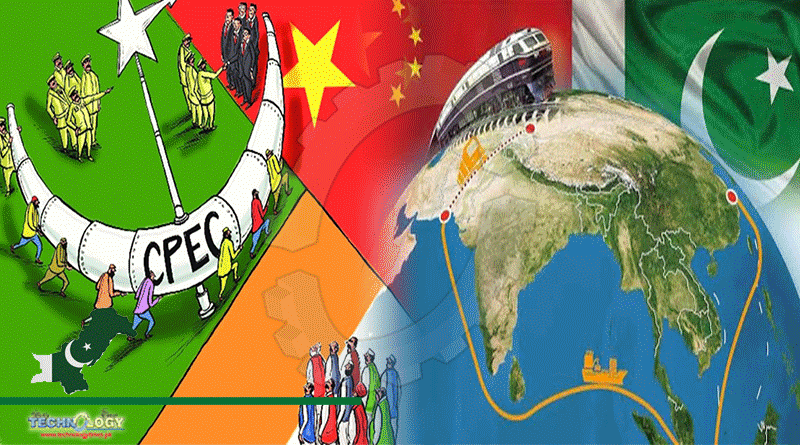CPEC needs enhanced Sino-Pak cooperation in the field of earth sciences, said Prof. Cui Peng, the Director-General of CPJRC yesterday.

CPEC needs enhanced Sino-Pak cooperation in the field of earth sciences, said Prof. Cui Peng, the Director-General of China-Pakistan Joint Research Centre on Earth Sciences (CPJRC) yesterday.
“The CPEC, located at the tectonic junction of the western Himalayas, is a natural museum and laboratory for earth sciences. Thus, research on geological conditions of this region is crucial for the construction of CPEC projects,” he told Gwadar Pro.
He said that what we are doing with Pakistani scientists is aiming to ensure the security and efficiency of CPEC projects construction.
Cui emphasised that research on earth science can support CPEC projects and local people’s well-being in four respects: providing solutions for adverse engineering and technical conditions; early warning of natural hazards; efficient utilization of mineral, marine, solar, and other natural resources; sustainable development and tackling climate change.
“Pak-China academic cooperation in earth sciences is not an impractical project and far from daily life,” he said.
Su believed that in addition to its contribution to the construction of infrastructure projects for people’s livelihood, earth science also plays a role in poverty alleviation.
Geoscience can be integrated with regional poverty alleviation, which is what China is doing, and the same can be done in Pakistan.
“There are two factors that lead to poverty, disease and disaster. Poverty due to disease is familiar, poverty caused by disaster is regional and can be alleviated through our efforts.
Meanwhile, the information system and sharing platform of CPEC has been designed and its prototype has been constructed, integrating the current data resources.
According to the 2021 plan of CPJRC, Su introduced that they will focus on deep lithosphere interaction from ocean subduction to continental; Climate change and environmental effects; Natural hazards and disaster risk reduction; Resources environment and green development.
The institution also is planning to establish field observation stations in Gwadar Port and Hunza.
Originally published at The Nation
